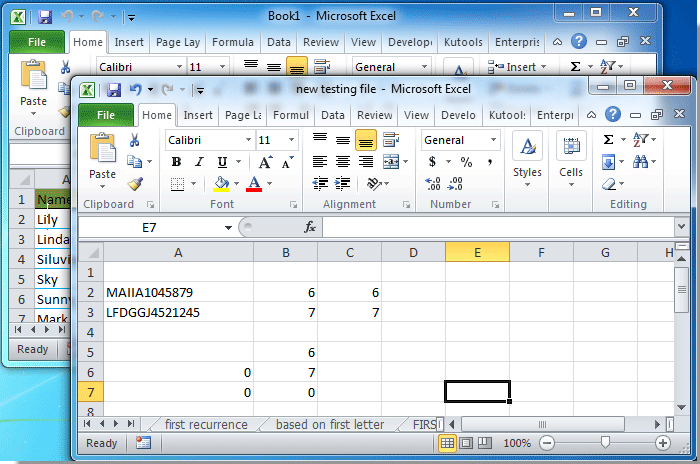7 Essential Documents for FSBO Real Estate Deals

The real estate market is ever-evolving, and with the advent of technology, many aspects of real estate transactions have become more accessible to the average homeowner. One such evolution is the rise of FSBO (For Sale By Owner) deals, where sellers bypass real estate agents to directly connect with potential buyers. While this approach can save on commissions, it does require a thorough understanding of the legal documentation involved. Here, we explore the seven essential documents every FSBO seller should be aware of to ensure a smooth transaction.
1. Property Disclosure Statement


The Property Disclosure Statement is perhaps the most critical document for FSBO sellers. This form legally obligates the seller to disclose known defects or issues with the property. It’s about transparency – informing the buyer about any significant flaws or past damages that could impact the value or safety of the property:
- Electrical or plumbing issues
- Previous water damage or mold
- Lead paint
- Any history of infestations (e.g., termites)
- Pending legal issues or disputes involving the property
💡 Note: Not all states require a property disclosure statement, but it’s often in the seller’s best interest to provide one to mitigate future liabilities.
2. Purchase Agreement


This document outlines the agreement between buyer and seller on the sale terms. Here are some elements typically found in a FSBO purchase agreement:
- Purchase Price: The agreed-upon price for the property.
- Deposit/Earnest Money: How much the buyer has put down to show their intent to purchase.
- Contingencies: Conditions that must be met for the sale to proceed, such as home inspection, financing, and sale of the buyer’s current home.
- Closing Date: When the transaction is expected to be finalized.
- Property Inclusions/Exclusions: What stays with the house, and what goes with the seller.
💡 Note: It’s advisable to get an attorney to draft or review this agreement to ensure all legal bases are covered.
3. Seller’s Closing Costs and Fees Statement


It’s vital to outline all the costs and fees the seller might incur during the closing process. This statement includes:
- Real estate transfer taxes
- Title insurance (if applicable)
- Escrow fees
- Attorney fees
- Any remaining property taxes
Understanding these costs helps both parties to budget effectively:
| Fee Type | Estimated Cost |
|---|---|
| Transfer Taxes | 0.5%-1% of Sale Price |
| Title Insurance | 1,000-1,500 (per $100K of sale price) |
| Escrow Fee | 1% of Sale Price |

4. Seller’s Affidavit


This affidavit states that the seller has the legal right to sell the property, there are no undisclosed liens or other claims against it, and the property is free from disputes:
- Verification of ownership
- Declaration of no outstanding mortgages or liens
- Confirmation of no ongoing disputes
5. Bill of Sale


Though not always required, a Bill of Sale can be useful to document the transfer of personal property or fixtures that are included in the sale:
- List of items included
- Acknowledgement of transfer of ownership
- Signatures of both parties
6. Lead-Based Paint Disclosure


If your property was built before 1978, federal law requires you to provide the buyer with information about lead-based paint and any known lead hazards. Key components include:
- Disclosure of any known lead-based paint or hazards
- Copies of records or reports
- Buyer’s acknowledgment of receiving the disclosure
💡 Note: This disclosure is mandatory to comply with the Residential Lead-Based Paint Hazard Reduction Act.
7. Settlement Statement


Also known as the Closing Disclosure or HUD-1 Form, this document provides a comprehensive summary of all costs, credits, prorations, and payments involved in the transaction:
- Adjustments for property taxes, utilities, etc.
- Buyer’s and seller’s closing costs
- Final disbursement details
The journey through FSBO can be intricate, requiring diligent preparation, attention to detail, and a strong understanding of the legal implications involved in real estate transactions. By ensuring you have the above documents in order, you not only comply with legal standards but also help facilitate a smoother, more transparent deal with potential buyers. Although selling a home by owner can save on agent fees, consider the time and expertise you might need for the legal and paperwork aspects. Working with an attorney or real estate professional for critical steps or document review can provide peace of mind and reduce the risk of errors or missed legal obligations.
Do I need an attorney for FSBO?

+
While not strictly necessary, having an attorney review key documents like the purchase agreement can be invaluable to ensure all legal aspects are covered and protect you from potential liabilities.
What happens if I forget to include a document during the FSBO process?

+
If you forget to include a required document, it could delay or even jeopardize the transaction. It’s important to use checklists and perhaps seek professional assistance to ensure all documents are in order.
Can I charge for repairs or upgrades as part of the FSBO deal?

+
Yes, but this should be clearly outlined in the purchase agreement. You can negotiate with the buyer to adjust the sale price based on the cost of repairs or upgrades you’ve made, or you might offer credits at closing.
What should I do if my home is too old for a lead paint disclosure?

+
If your home was built before 1978, you must provide lead paint disclosure regardless of the age of the home. Even if the paint was covered or removed, you need to inform buyers of its history.
How can I ensure my property disclosure is comprehensive?

+
To ensure your disclosure is comprehensive, review historical records, get professional inspections, and document any past issues or repairs. Honesty is the best policy; the goal is to avoid future disputes or legal actions by providing full transparency.



